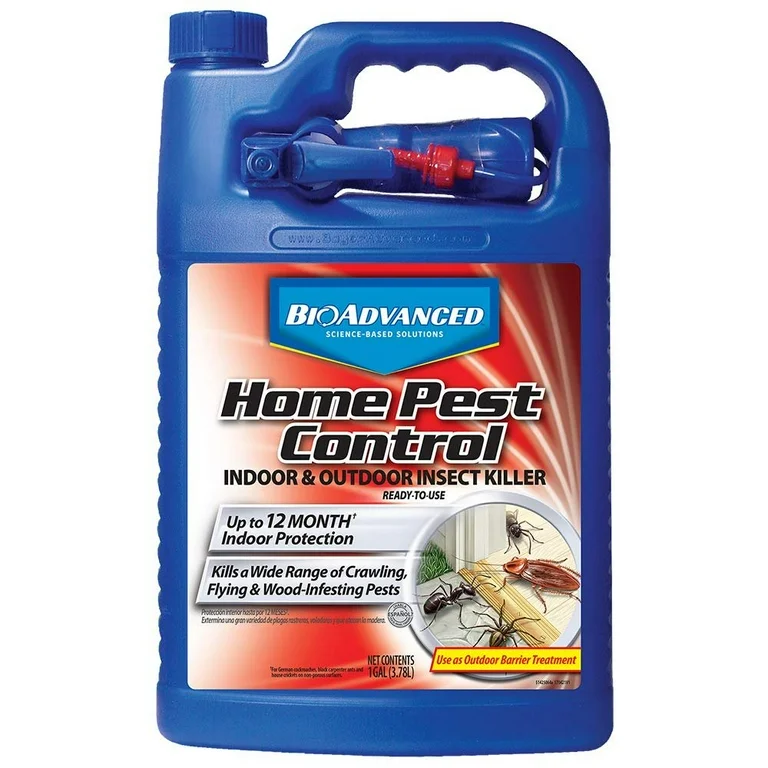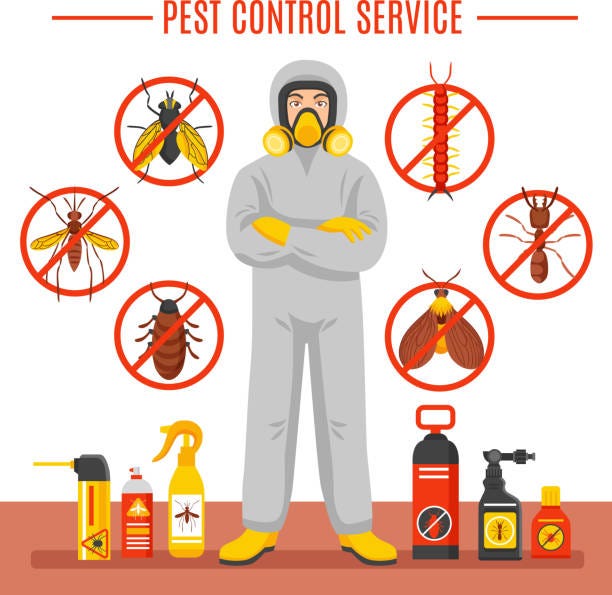Setting Apart In Between Sorts Of Insect Control Techniques
When it involves managing parasite invasions, a plethora of approaches exist to deal with the issue effectively. From chemical solutions to ecologically pleasant approaches, the spectrum of pest control methods is varied and nuanced. By understanding the distinctions between numerous techniques, people can make educated choices that line up with their worths and the details requirements of their insect situation. The development of insect control techniques has actually led to the growth of innovative techniques that cater to various requirements and choices. By exploring the ins and outs of each strategy, one can gain insight right into the most suitable means to address pest-related obstacles.
Chemical Bug Control Techniques
Chemical parasite control methods are frequently used in the farming industry to effectively eliminate and take care of pest infestations. These methods include the use of chemicals, fungicides, and herbicides to target and get rid of undesirable insects that can cause damage to plants. Pesticides are substances particularly made to kill or manage insects such as rodents, insects, and weeds. Herbicides, on the various other hand, are used to regulate undesirable plants that take on crops for nutrients, water, and sunlight. Fungicides are made use of to stop and handle fungal conditions that can ravage plants.
While chemical insect control methods can be very reliable in managing bug populations, there are likewise issues regarding their prospective effect on human health and wellness and the environment. Pesticides, specifically, can position dangers to farmworkers, consumers, and wildlife if not made use of correctly. To alleviate these risks, it is important for farmers and pest control experts to follow proper application methods, stick to safety and security standards, and consider different bug control methods whenever feasible. By stabilizing the advantages of chemical pest control with the requirement for environmental and human security, the farming market can efficiently manage parasite infestations while minimizing adverse repercussions.
Organic Pest Control Methods
Given the potential problems connected to the effect of chemical bug control approaches on human health and wellness and the setting, a shift in the direction of utilizing Organic Bug Control Methods uses an extra sustainable and eco-friendly strategy to handling parasite problems in farming. Biological pest control involves using various other living organisms to regulate pest populaces. This technique can consist of the introduction of all-natural killers, bloodsuckers, or microorganisms that target details bugs, interrupting their lifecycle and lowering their numbers. One usual instance is making use of ladybugs to regulate aphids in agricultural setups. By promoting natural killers, organic parasite control can help keep an equilibrium in the ecosystem without relying upon dangerous chemicals. Furthermore, organic control approaches tend to be a lot more targeted, affecting only the insect species without damaging various other organisms or valuable insects. While biological pest control might call for even more time to reveal outcomes contrasted to chemical approaches, its long-term performance and minimal ecological impact make it a preferred selection for lasting bug management in farming.
Mechanical Parasite Control Methods
Making use of physical barriers or gadgets to straight get rid of or fend off bugs is the significance of mechanical pest control methods. Physical traps such as mousetraps, flypaper, or pheromone catches are also widely utilized to record and regulate pests.
An additional reliable mechanical insect control technique is making use of vacuum tools to physically get rid of bugs from plagued areas (pest control fresno). Vacuuming not just removes adult bugs yet also aids in eliminating larvae and eggs, disrupting the pest's life cycle. Furthermore, mechanical parasite control methods include the use of obstacles like caulking or securing gaps and fractures to avoid parasite entry right into buildings
All-natural Pest Control Techniques
One effective approach in bug control includes utilizing natural environments and processes to manage pest populations in an ecologically friendly fashion. Natural parasite control methods take advantage of the community's own checks and equilibriums to regulate insects without counting on synthetic chemicals. One usual technique is biological control, where natural predators see this here or bloodsuckers of pests are presented to maintain parasite populaces in check. Ladybugs, as an example, are recognized for feeding upon aphids, thus working as a natural type of bug control in yards. Furthermore, planting diverse crops can help interfere with pest life cycles by developing a less beneficial environment for them to flourish.
An additional natural technique is using botanicals such as neem garlic, chili, or oil pepper sprays to fend off or discourage insects. These materials are derived from plants and are less unsafe to the environment compared to chemical pesticides. Additionally, exercising good garden health, like getting rid of pest habitats and including buddy growing strategies, can additionally assist in pest management without hurting advantageous organisms. By welcoming all-natural parasite control methods, people can secure their plants while promoting a much healthier and extra sustainable environment.

Integrated Bug Administration (IPM)
Integrated Insect Administration (IPM) is a thorough method to pest control that concentrates on combining various approaches to decrease pest damages while reducing risks to human health and the environment. IPM incorporates organic, cultural, physical, and chemical tactics to manage bugs successfully - pest control fresno. This method emphasizes avoidance, surveillance, and control to address pest problems in one of the most eco-friendly and financially sensible method

Chemical control is used as a last resource in IPM and is used deliberately, targeting details bugs while decreasing injury to valuable microorganisms and the ecosystem. By integrating these varied strategies, IPM dig this provides a lasting and alternative strategy to pest management.
Conclusion
In conclusion, comprehending the numerous types of bug try these out control methods is crucial in efficiently taking care of insect invasions. Integrated Pest Management (IPM) integrates numerous approaches for a more environmentally-friendly and lasting strategy to pest control.
While chemical insect control approaches can be highly efficient in controlling insect populaces, there are also problems regarding their possible effect on human wellness and the environment. To alleviate these dangers, it is important for farmers and bug control professionals to follow proper application techniques, stick to safety and security standards, and think about different insect control techniques whenever possible.Provided the prospective issues related to the influence of chemical insect control approaches on human wellness and the atmosphere, a change towards making use of Biological Parasite Control Methods provides a more environmentally friendly and lasting technique to managing insect invasions in agriculture. Natural bug control techniques take advantage of the environment's very own checks and balances to control parasites without counting on synthetic chemicals.Integrated Insect Monitoring (IPM) is a detailed strategy to pest control that concentrates on incorporating various approaches to reduce bug damage while decreasing threats to human health and the atmosphere.